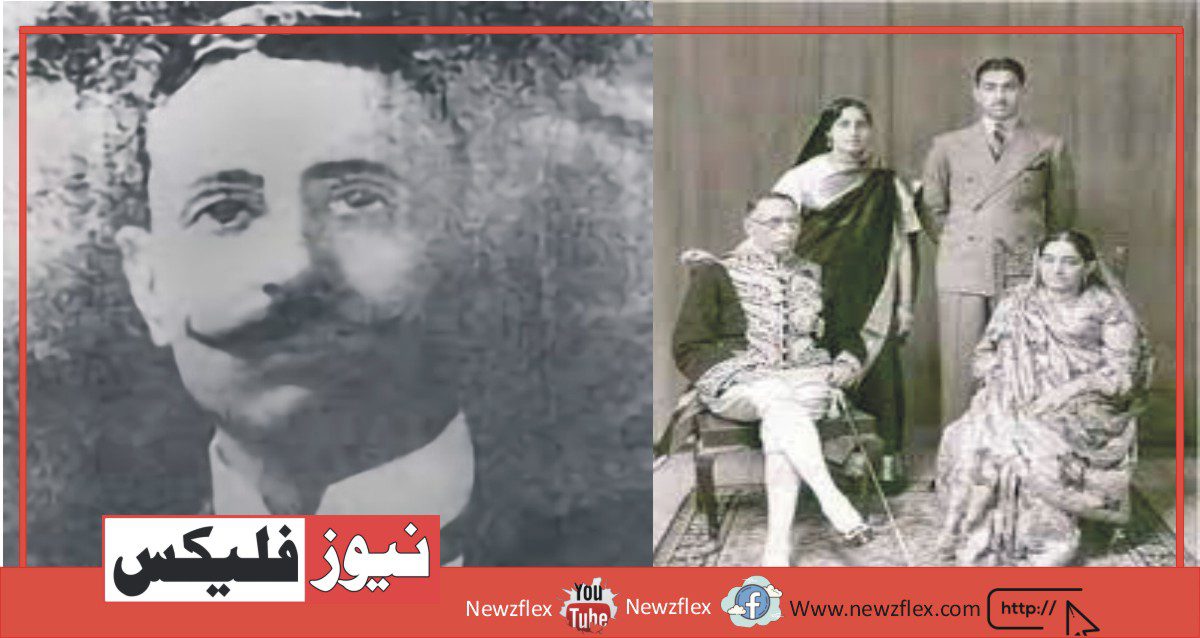
Raana Liaquat Ali Khan
Begum Raana Liaquat Ali Khan was one of the leading women and prominent figures in the Pakistan movement together with her husband who witnessed Pakistan’s creation and gave her services to newborn Pakistan. She was an unconventional lady with new thoughts and ideas who was always able to give her 100% regardless of the situation.
Begum Rana Liaquat Ali Khan was born in Almora India to a British Army senior officer, whose Brahmin family was a recent convert to Christianity in 1887. Her real name was Sheila Irene Pant. She passed her matriculation from her native school. She got her B.An Economics and B.T. in Religion studies in 1927.
Later she obtained a double M.S.c in Economics and Sociology with Honors in 1929. She began her career as an educator in the Gokhale Memorial School after completing the Teachers Diploma Course from the Diocesan College, Calcutta. After her Master’s degree, Raana was appointed as a Professor of Economics at Indraprastha College University, of latest Delhi in 1931.
Pant met Liaqat Ali Khan when he came there to deliver a lecture on Law and Justice at the Indraprastha College University in 1931. In December 1932, she got married to Liaquat Ali Khan after embracing Islam. She changed her name from Sheila Irene Pant to Raana Liaquat Ali Khan. Together with her husband, Raana strongly opposed the Simon Commission. While a Professor of Economics, Raana immensely mobilized students from her college and visited the general assembly to listen to her husband’s debate carrying play cards of “Simon Go Home”.
With Liaquat Ali Khan won the controversy, and became a rapid hero together with her friends. She later sold him a ticket to a stage show to boost funds for flood relief in Bihar. Raana proved to be Liaquat Ali Khan’s constant partner and companion. She became politically attached to her husband and played a significant role in the Pakistan Movement. She became a defining moment in Pakistan’s history when she accompanied her husband to London, the United Kingdom in May 1933.
There, she and Khan met with Jinnah at Hamstead Heath’s residence and successfully convinced Jinnah to return to the British Indian Empire to resume the Leadership of the All India Muslim League. Jinnah returned to India, and Ra’ana was appointed an executive member of the Muslim League and Chairperson of the Economic Division of the Party.
In 1942, when it became apparent that Imperial Japan was near attacking India, Jinnah summoned Rana and said to her “Be prepared to coach the ladies. Islam doesn’t want women to be shut up and never see fresh air”. To undertake this task, Raana began to arrange Muslim women presented in the same year when she formed a small volunteer medical corps for nursing and care in Delhi. Begum Raana played a vital role in creating political awareness among women. Raana was among the aspiring women in the Subcontinent and encouraged many women to fight for Pakistan shoulder-to-shoulder with men.
After the creation of Pakistan, she became the first Lady of the country. As First Lady, she initiated reforms for women and child development, and the social progress of women and played a significant role in women’s part in Pakistan’s politics. After the assassination of her husband Liaquat Ali Khan in 1951, Begum Raana continued her services for the social and economic good thing about women of Pakistan till her death in 1990. one of the daunting challenges for her was to arrange health services for ladies and youngsters migrating from India to Pakistan.
In 1947 begum Raana Liaquat Ali Khan instigated a mission for refugees, especially for kids who became a victim of many diseases like measles, cholera, and Diarrhea at every movement she asked the military to give training to nurses so they would be able to provide aid.
To raise awareness for the rights, and social uplift of ladies she formed the Pakistan Women Association and Ladies Home Reserve which disbanded after a few years when she was appointed as ambassador of the Netherlands because of the apathy of the Govt.
After her husband’s death, Raana went on to start her career as a stateswoman which lasted quite 2 decades. In 1952, Raana was the first Muslim woman delegate to the United Nations 1952. In 1954, the govt. of Pakistan had appointed her as Pakistan’s Ambassador to The Netherlands and also was the first woman ambassador of Pakistan. She represented Pakistan in the Netherlands until 1961 and was also the Doyen of the diplomatic service. In June 1966, she was appointed as Pakistan Ambassador to Italy and stayed there until 1965.
Later, she was directed to Tunisia as Pakistan Ambassador and held this position until March 1966. Following her return to Pakistan, Raana joined Rana Liaquat Ali Khan Government College of Household Arts as a Professor of Economics and stayed there until 1973. the govt. College University awarded her an honorary doctorate in economics and conferred her with a Doctor of Philosophy in Economics in 1967.
In 1972, as Pakistan was dismembered and probing an intense crisis, Raana joined hands with then-President Zulfikar Ali Bhutto and therefore the front and joined the socialist government of Zulfikar Ali Bhutto. Raana was a part of the Bhutto Ministry of Finance and Economics and played a significant and influential role in decisions being made concerning economics. Bhutto encouraged her to participate in upcoming elections and won the elections of 1973. Bhutto failed to waste time and appointed Raana as Governor of Sindh Province.
Raana was the first woman governor of the province of Sind and also the first Chancellor of Sindh University and Karachi University. She continued her term until 1976 when new elections were made. Raana again contested in the 1977 parliamentary elections but failed to take office because of a law imposed by General Zia-ul-Haq, Chief of Army Staff of the Pakistan Army.
She was one of the personalities that argued against jurisprudence and also the execution of Bhutto. Daily when Bhutto was executed, Raana was reported to be disheartened and emotionally distressed and cried over Bhutto’s death for quite three days constantly. Raana launched an anti-Zia campaign and fought against the military government of General Zia.
She single-handedly took on Pakistan’s most powerful man, General Zia-ul-Haq, at that time. It had been during the 1980s, when she, despite her illness and maturity, publicly attacked the overall for passing Islamic laws that were contradictory to Islamic teachings and clearly against women. The final, out of respect for her position in society and achievements, decided to depart her alone.
Begum Liaquat died on June 13, 1990, and was buried next to her husband in the Quaid-e-Azam Mausoleum. together with her has ended a historic period for the ladies and youth of Pakistan whose, future generations, would seek inspiration from Begum Liaquat’s life and contributions to the emancipation of girls.
Rana is considered one of the best female leaders Pakistan has produced. In Pakistan, she was given the title “Mother of Pakistan” received in 1950. Rana continues to be seen as a logo of selfless service to the reason behind humanity and therefore the uplift of girls. In recognition of her lifelong struggle for women’s rights, she was awarded the United Nations Human Rights Award in 1978.
Her other many awards and medals include the “Jane Adam’s Medal” in 1950, Woman of accomplishment Medal in 1950, Mother of Pakistan in 1950, Nishan-i-Imtiaz in 1959, Grand Cross of Orange Nassau in 1961 (the Netherlands), International Gimbel Award in 1962, Woman of the world in 1965 chosen by the Turkish Women’s Association, Ankara and Vavaliera di Gran Croce in 1966 (Italy)
She has given her hard and painstaking work for the reason for Pakistan till her last breath and become an inspirational personality for women in addition to males. She never gave up in her life, and gave her all support to her husband shoulder to shoulder, Her life which was stuffed with valour, gallant and dare could be a big example for the ladies of Pakistan. She is going to always remain in our hearts.
رانا لیاقت علی خان
بیگم رعنا لیاقت علی خان اپنے شوہر کے ساتھ تحریک پاکستان کی سرکردہ خواتین اور نمایاں شخصیات میں سے ایک تھیں جنہوں نے نہ صرف پاکستان کے قیام کی گواہی دی بلکہ نوزائیدہ پاکستان کے لیے اپنی خدمات بھی دیں۔ وہ نئے خیالات اور نظریات رکھنے والی بنیاد پرست خاتون تھیں جو ہر وقت کسی بھی صورت حال میں اسے 100% دینے کے لیے تیار رہتی ہیں۔
بیگم رعنا لیاقت علی خان ہندوستان کے الموڑہ میں ایک برطانوی فوج کے اعلیٰ افسر کے ہاں پیدا ہوئیں، جن کا برہمن خاندان حال ہی میں 1887 میں عیسائیت میں تبدیل ہوا تھا۔ ان کا اصل نام شیلا آئرین پنت تھا۔ اس نے اپنے آبائی اسکول سے میٹرک پاس کیا۔ اس نے 1927 میں اپنا بی-اے اکنامکس اور بی-ٹی مذہب کی تعلیم میں کیا۔ بعد میں انہوں نے 1929 میں آنرز کے ساتھ معاشیات اور سوشیالوجی میں ڈبل ایم-ایس -سی حاصل کی۔ انہوں نے اپنے کیریئر کا آغاز گوکھلے میموریل اسکول میں ٹیچر کی حیثیت سے ڈائیوسین کالج کلکتہ سے ٹیچرز ڈپلومہ کورس کے بعد کیا۔ اپنی ماسٹر ڈگری کے بعد، رانا کو 1931 میں نئی دہلی کے اندرا پرستھ کالج یونیورسٹی میں معاشیات کے پروفیسر کے طور پر مقرر کیا گیا۔
پنت کی ملاقات لیاقت علی خان سے ہوئی جب وہ 1931 میں اندرا پرستھ کالج یونیورسٹی میں لاء اینڈ جسٹس پر لیکچر دینے آئے تھے۔ دسمبر 1932 میں، اس نے اسلام قبول کرنے کے بعد لیاقت علی خان سے شادی کر لی۔ انہوں نے اپنا نام شیلا آئرین پنت سے بدل کر رانا لیاقت علی خان رکھ لیا۔ رانا نے اپنے شوہر کے ساتھ سائمن کمیشن کی سخت مخالفت کی۔ اقتصادیات کے پروفیسر کے طور پر، رانا نے اپنے کالج کے طلباء کو بے حد متحرک کیا اور اپنے شوہر کی بحث کو سننے کے لیے قانون ساز اسمبلی میں ‘سائمن گو ہوم’ کے پلے کارڈز لے کر گئے۔ لیاقت علی خان نے بحث جیت کر اپنے دوستوں کے ساتھ فوری ہیرو بن گئے۔ بعد میں اس نے اسے بہار میں سیلاب کی امداد کے لیے فنڈ اکٹھا کرنے کے لیے ایک اسٹیج شو کا ٹکٹ بیچا۔ رانا لیاقت علی خان کا مستقل ساتھی ثابت ہوا۔
وہ اپنے شوہر کے ساتھ سیاسی طور پر منسلک ہوگئیں اور تحریک پاکستان میں اہم کردار ادا کیا۔ وہ پاکستان کی تاریخ کا ایک اہم لمحہ بن گیا جب وہ مئی 1933 میں اپنے شوہر کے ساتھ لندن، برطانیہ گئیں۔ وہاں، وہ اور خان نے جناح سے ہیمسٹیڈ ہیتھ کی رہائش گاہ پر ملاقات کی اور جناح کو کامیابی کے ساتھ قائل کیا کہ وہ برطانوی ہندوستانی سلطنت کی قیادت کو دوبارہ شروع کرنے کے لیے واپس آئیں۔ آل انڈیا مسلم لیگ۔ جناح ہندوستان واپس آئے، اور رانا کو مسلم لیگ کا ایگزیکٹو ممبر اور پارٹی کے اکنامک ڈویژن کا چیئرپرسن مقرر کیا گیا۔
سنہ 1942 میں، جب یہ ظاہر ہو گیا کہ امپیریل جاپان ہندوستان پر حملہ کرنے کے قریب ہے، جناح نے رانا کو بلایا کہ ‘خواتین کو تربیت دینے کے لیے تیار رہو۔ اسلام نہیں چاہتا کہ عورتیں بند رہیں اور کبھی تازہ ہوا نہ دیکھیں’۔ اس کام کو انجام دینے کے لیے، رانا نے اسی سال مسلم خواتین کو منظم کرنا شروع کیا جب اس نے دہلی میں نرسنگ اور ابتدائی طبی امداد کے لیے ایک چھوٹی رضاکارانہ میڈیکل کور تشکیل دی۔ بیگم رعنا نے خواتین میں سیاسی بیداری پیدا کرنے میں اہم کردار ادا کیا۔ رانا برصغیر کی خواہشمند خواتین میں سے ایک تھیں اور انہوں نے سینکڑوں خواتین کو مردوں کے کندھے سے کندھا ملا کر پاکستان کے لیے لڑنے کی ترغیب دی۔
قیام پاکستان کے بعد وہ ملک کی خاتون اول بن گئیں۔ خاتون اول کے طور پر، انہوں نے خواتین اور بچوں کی ترقی، عورت کی سماجی ترقی کے لیے اصلاحات کا آغاز کیا اور پاکستان کی سیاست میں خواتین کے کردار کے لیے اہم کردار ادا کیا۔ 1951 میں اپنے شوہر لیاقت علی خان کے قتل کے بعد، بیگم رعنا نے 1990 میں اپنی موت تک پاکستان کی خواتین کے سماجی اور معاشی فائدے کے لیے اپنی خدمات جاری رکھیں۔ ان کے لیے ایک مشکل چیلنج ہندوستان سے پاکستان نقل مکانی کرنے والی خواتین اور بچوں کے لیے صحت کی خدمات کا اہتمام کرنا تھا۔
سنہ 1947میں بیگم رعنا لیاقت علی خان نے مہاجرین کے لیے ایک مشن شروع کیا، خاص طور پر ان بچوں کے لیے جو خسرہ، ہیضہ، اسہال جیسی کئی بیماریوں کا شکار ہو گئے تھے، انھوں نے فوج سے کہا کہ وہ نرسوں کو تربیت دیں تاکہ وہ ابتدائی طبی امداد فراہم کر سکیں۔ .
خواتین کے حقوق، سماجی بہتری کے لیے شعور اجاگر کرنے کے لیے انھوں نے پاکستان ویمن ایسوسی ایشن اور وومن نیشنل گارڈ بنائی جو حکومت کی بے حسی کی وجہ سے ہالینڈ کی سفیر کے عہدے سے سبکدوش ہونے کے بعد چند سالوں بعد ختم ہو گئی۔
اپنے شوہر کی موت کے بعد، رانا نے ریاستی خاتون کے طور پر اپنے کیریئر کا آغاز کیا جو 2 دہائیوں سے زیادہ جاری رہا۔ 1952 میں، رانا اقوام متحدہ 1952 میں پہلی مسلمان خاتون مندوب تھیں۔ 1954 میں، حکومت پاکستان نے انہیں ہالینڈ میں پاکستان کی سفیر مقرر کیا تھا اور وہ پاکستان کی پہلی خاتون سفیر بھی تھیں۔ انہوں نے 1961 تک ہالینڈ میں پاکستان کی نمائندگی کی اور ڈپلومیٹک کور کی ڈوئن بھی تھیں۔
جون 1966 میں، وہ اٹلی میں پاکستان کی سفیر کے طور پر مقرر ہوئیں اور 1965 تک وہیں رہیں۔ بعد میں، انہیں پاکستان کی سفیر کے طور پر تیونس بھیج دیا گیا اور مارچ 1966 تک اس عہدے پر فائز رہیں۔ پاکستان واپسی کے بعد رانا نے رانا لیاقت علی خان گورنمنٹ کالج میں داخلہ لیا۔ ہوم اکنامکس میں بطور پروفیسر آف اکنامکس اور 1973 تک وہیں رہے۔ گورنمنٹ کالج یونیورسٹی نے انہیں معاشیات میں ڈاکٹریٹ کی اعزازی ڈگری دی اور 1967 میں انہیں ڈاکٹر آف فلسفہ ان اکنامکس سے نوازا۔ 1972 میں جب پاکستان ٹکڑے ٹکڑے ہو رہا تھا اور ایک شدید بحران سے گزر رہا تھا، رانا نے اس وقت کے صدر ذوالفقار علی بھٹو اور سیاسی تحریک سے ہاتھ ملایا اور ذوالفقار علی بھٹو کی سوشلسٹ حکومت میں شمولیت اختیار کی۔
رانا بھٹو کی وزارت خزانہ اور اقتصادیات کا حصہ تھے اور معاشیات سے متعلق فیصلوں میں اہم اور بااثر کردار ادا کرتے تھے۔ بھٹو نے انہیں آنے والے انتخابات میں حصہ لینے کی ترغیب دی اور 1973 کے انتخابات میں کامیابی حاصل کی۔ بھٹو نے وقت ضائع نہیں کیا اور رانا کو صوبہ سندھ کا گورنر مقرر کیا۔ رانا صوبہ سندھ کی پہلی خاتون گورنر اور سندھ یونیورسٹی اور کراچی یونیورسٹی کی پہلی چانسلر تھیں۔ انہوں نے 1976 تک اپنی مدت ملازمت جاری رکھی جب نئے انتخابات ہوئے۔ رانا نے دوبارہ 1977 کے پارلیمانی انتخابات میں حصہ لیا لیکن پاکستان آرمی کے چیف آف آرمی سٹاف جنرل ضیاء الحق کے مارشل لاء کے باعث انہوں نے عہدہ نہیں سنبھالا۔ وہ ان شخصیات میں سے ایک تھیں جنہوں نے مارشل لاء اور بھٹو کی پھانسی کے خلاف بحث کی۔
ایک دن جب بھٹو کو پھانسی دی گئی، رانا کو مایوس اور جذباتی طور پر پریشان بتایا گیا اور وہ تین دن سے زیادہ مسلسل بھٹو کی موت پر روتا رہا۔ رانا نے ضیاء مخالف مہم شروع کی اور جنرل ضیاء کی فوجی حکومت کے خلاف لڑا۔ انہوں نے اس وقت پاکستان کے سب سے طاقتور شخص جنرل ضیاء الحق کو اکیلا ہی ٹکرایا۔ یہ 1980 کی دہائی کے دوران تھا، جب اس نے اپنی بیماری اور بڑھاپے کے باوجود جنرل پر اسلامی قوانین کی منظوری کے لیے کھلے عام حملہ کیا جو اسلامی تعلیمات سے متصادم اور واضح طور پر خواتین کے خلاف تھے۔ جنرل نے معاشرے میں اپنے مقام اور کامیابیوں کے احترام میں اسے تنہا چھوڑنے کا فیصلہ کیا۔
بیگم لیاقت کا انتقال 13 جون 1990 کو ہوا، اور انہیں مزار قائد میں اپنے شوہر کے پہلو میں دفن کیا گیا۔ اس کے ساتھ پاکستان کی خواتین اور نوجوانوں کے لیے ایک تاریخی دور کا خاتمہ ہوا ہے جس کی آنے والی نسلیں بیگم لیاقت کی زندگی اور خواتین کی آزادی کے لیے کیے گئے تعاون سے تحریک حاصل کریں گی۔
رانا کو پاکستان کی عظیم ترین خواتین لیڈروں میں سے ایک سمجھا جاتا ہے۔ پاکستان میں، انہیں 1950 میں ‘مدر آف پاکستان’ کا خطاب دیا جاتا ہے۔ رعنا کو انسانیت اور خواتین کی ترقی کے لیے بے لوث خدمت کی علامت کے طور پر دیکھا جاتا ہے۔ خواتین کے حقوق کے لیے ان کی زندگی بھر کی جدوجہد کے اعتراف میں، انہیں 1978 میں اقوام متحدہ کے انسانی حقوق کے ایوارڈ سے نوازا گیا۔
ان کے دیگر بہت سے ایوارڈز اور تمغوں میں 1950 میں ‘جین ایڈمز میڈل’، وومن آف اچیومنٹ میڈل 1950، مدر آف پاکستان شامل ہیں۔ 1950، نشان امتیاز 1959 میں، گرینڈ کراس آف اورنج ناساو 1961 (ہالینڈ)، انٹرنیشنل گیمبل ایوارڈ 1962، وومن آف دی ورلڈ 1965 میں ترک خواتین کی ایسوسی ایشن، انقرہ اور واولیرا دی گران کروس (1965 میں)
انہوں نے اپنی آخری سانس تک پاکستان کے لیے اپنی محنت اور جانفشانی سے کام دیا اور خواتین کے ساتھ ساتھ مردوں کے لیے بھی متاثر کن شخصیت بنیں۔ انہوں نے اپنی زندگی میں کبھی ہمت نہیں ہاری، اپنے شوہر کے کندھے سے کندھا ملا کر ہر طرح کا ساتھ دیا، ان کی زندگی جو بہادری، بہادری اور ہمت سے بھرپور تھی پاکستان کی خواتین کے لیے ایک بڑی مثال ہے۔ وہ ہمیشہ ہمارے دلوں میں رہے گی۔








